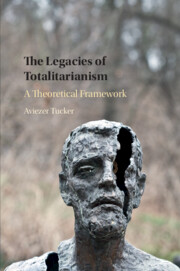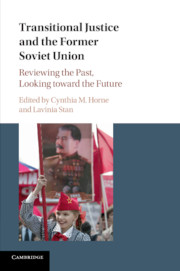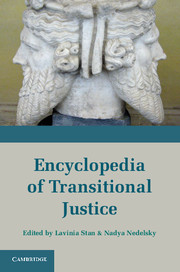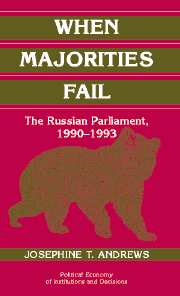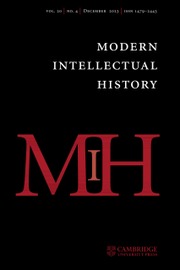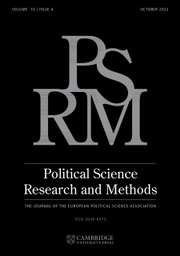The Legacies of Totalitarianism
A Theoretical Framework
£22.99
- Author: Aviezer Tucker, Harvard University, Massachusetts
- Date Published: November 2022
- availability: Available
- format: Paperback
- isbn: 9781107549272
£
22.99
Paperback
Other available formats:
Hardback, eBook
Looking for an inspection copy?
This title is not currently available on inspection
-
The first political theory of post-Communism examines its implications for understanding liberty, rights, transitional justice, property rights, privatization, rule of law, centrally planned public institutions, and the legacies of totalitarian thought in language and discourse. The transition to post-totalitarianism was the spontaneous adjustment of the rights of the late-totalitarian elite to its interest. Post-totalitarian governments faced severe scarcity in the supply of justice. Rough justice punished the perpetrators and compensated their victims. Historical theories of property rights became radical, and consequentialist theories, conservative. Totalitarianism in Europe disintegrated but did not end. The legacies of totalitarianism in higher education met New Public Management, totalitarian central planning under a new label. Totalitarianism divorced language from reality through the use of dialectics that identified opposites and the use of logical fallacies to argue for ideological conclusions. This book illustrates these legacies in the writings of Habermas, Derrida, and Žižek about democracy, personal responsibility, dissidence, and totalitarianism.
Read more- Presents a new theory of post-totalitarianism
- Integrates political philosophy and theory with comparative politics
- Offers a new theory and interpretation of post-totalitarian transitional justice
Reviews & endorsements
'Discussion about post-communist Central and Eastern Europe has long been tethered to imprecise, ideologically driven thinking. This book reframes the conversation in a manner befitting the region's unique history and plugs a lingering gap in political theory.' Benjamin Cunningham, Prague correspondent, The Economist
See more reviews“Only dissidents can save us now. This will be the one truly positive legacy of totalitarianism (maybe together with public transportation)', writes Aviezer Tucker. His book deals with the negative aspects of this legacy, though – and there are plenty of them, not only in the East. Essential reading at a time when the history of Central and Eastern Europe seems unfinished, again.' Aleksander Kaczorowski, editor, Aspen Review Central Europe
'In this superb and long-awaited book, Aviezer Tucker writes from a deep understanding of totalitarian and post-totalitarian regimes, mainly under Communism but also elsewhere. In his vivid phrase, 'Totalitarianism is not dead, it merely disintegrated. Its pieces are spread all over and they can be put back together again'. Ranging from painstaking empirical documentation to acute conceptual analyses, written with passion and irony, the book will undermine the complacency and wilful blindness of many Western intellectuals and politicians.' Jon Elster, Robert K. Merton Professor of Social Science, Columbia University
'Aviezer Tucker does not let us forget the totalitarian past - and with good reason. In this admirably comprehensive book, he revisits the much-debated (but later ignored) notions of totalitarianism, late totalitarianism, and post-totalitarianism and offers a powerful, thought-provoking interpretation of their legacies. Tucker discusses interrelated issues in elite change, lustration, transitional justice, property rights, and the configuration of post-totalitarian thinking in a way that opens new insights for academic debates. This book is a welcome contribution to studies in both political philosophy and historical sociology.' András Bozóki, Central European University
'Tucker's book is an exciting read. It will be of interest to political theorists and to those who work on issues of transitional justice in a range of geographical and historical contexts.' Martin K. Dimitrov, The Review of Politics
Customer reviews
Not yet reviewed
Be the first to review
Review was not posted due to profanity
×Product details
- Date Published: November 2022
- format: Paperback
- isbn: 9781107549272
- length: 270 pages
- dimensions: 230 x 150 x 18 mm
- weight: 0.442kg
- availability: Available
Table of Contents
Introduction
1. The adjustment of elite rights to interests
2. Post-totalitarian rough justice
3. Rough justice: post-totalitarian retribution
4. Rough and shallow: post-totalitarian rectification
5. The new politics of property rights
6. Old to new totalitarianism: post-totalitarian higher education
7. Short-circuiting reason: the legacies of post-totalitarian thinking
Conclusion. Only dissidents can save us now.
Sorry, this resource is locked
Please register or sign in to request access. If you are having problems accessing these resources please email [email protected]
Register Sign in» Proceed
You are now leaving the Cambridge University Press website. Your eBook purchase and download will be completed by our partner www.ebooks.com. Please see the permission section of the www.ebooks.com catalogue page for details of the print & copy limits on our eBooks.
Continue ×Are you sure you want to delete your account?
This cannot be undone.
Thank you for your feedback which will help us improve our service.
If you requested a response, we will make sure to get back to you shortly.
×
